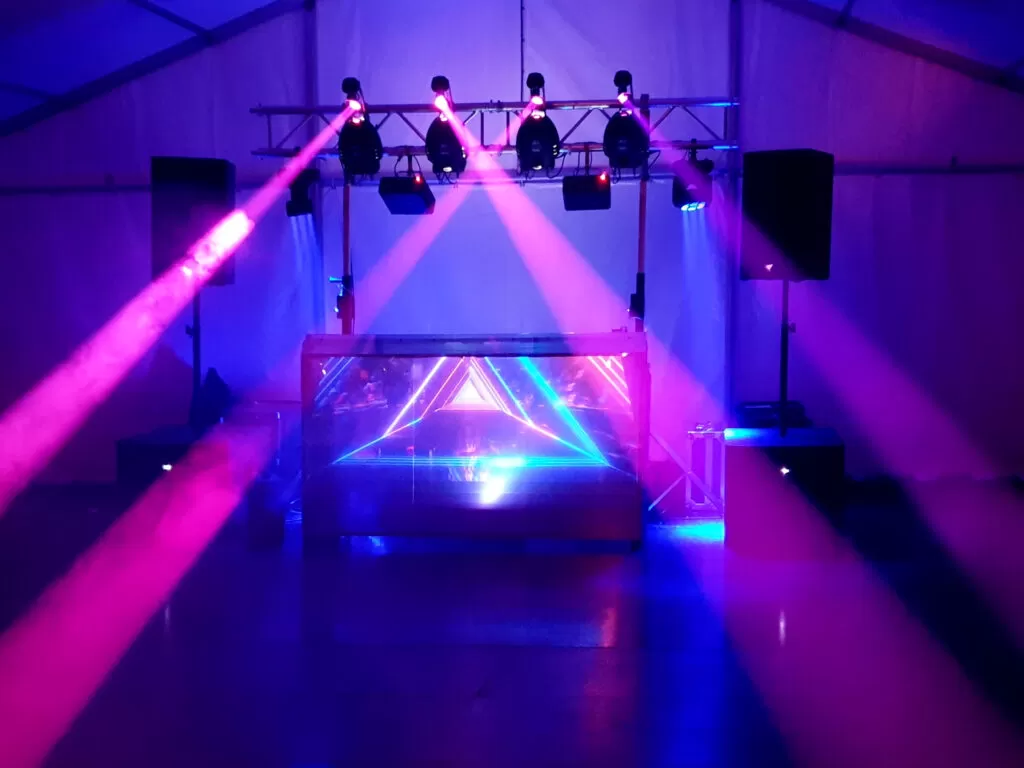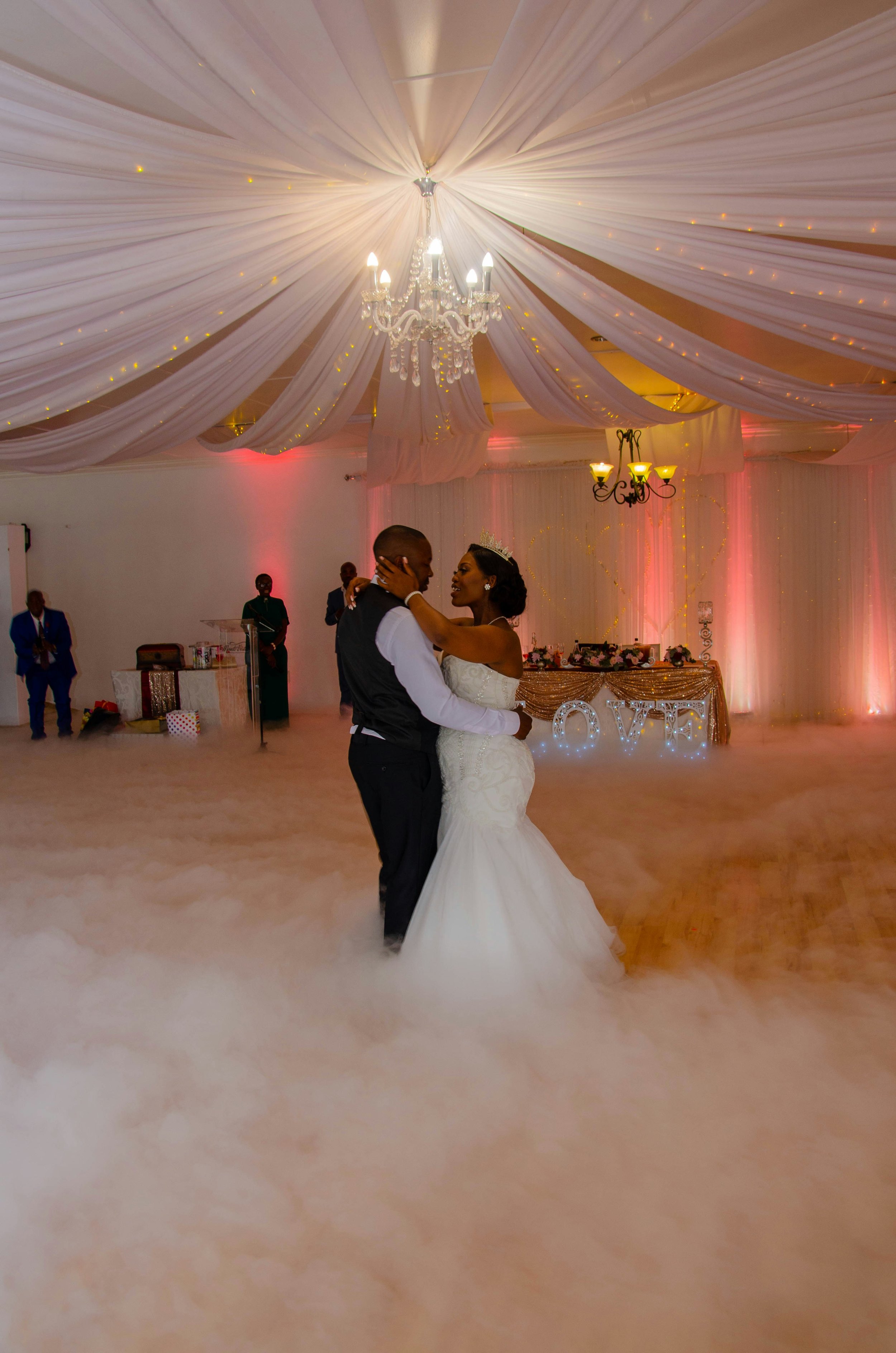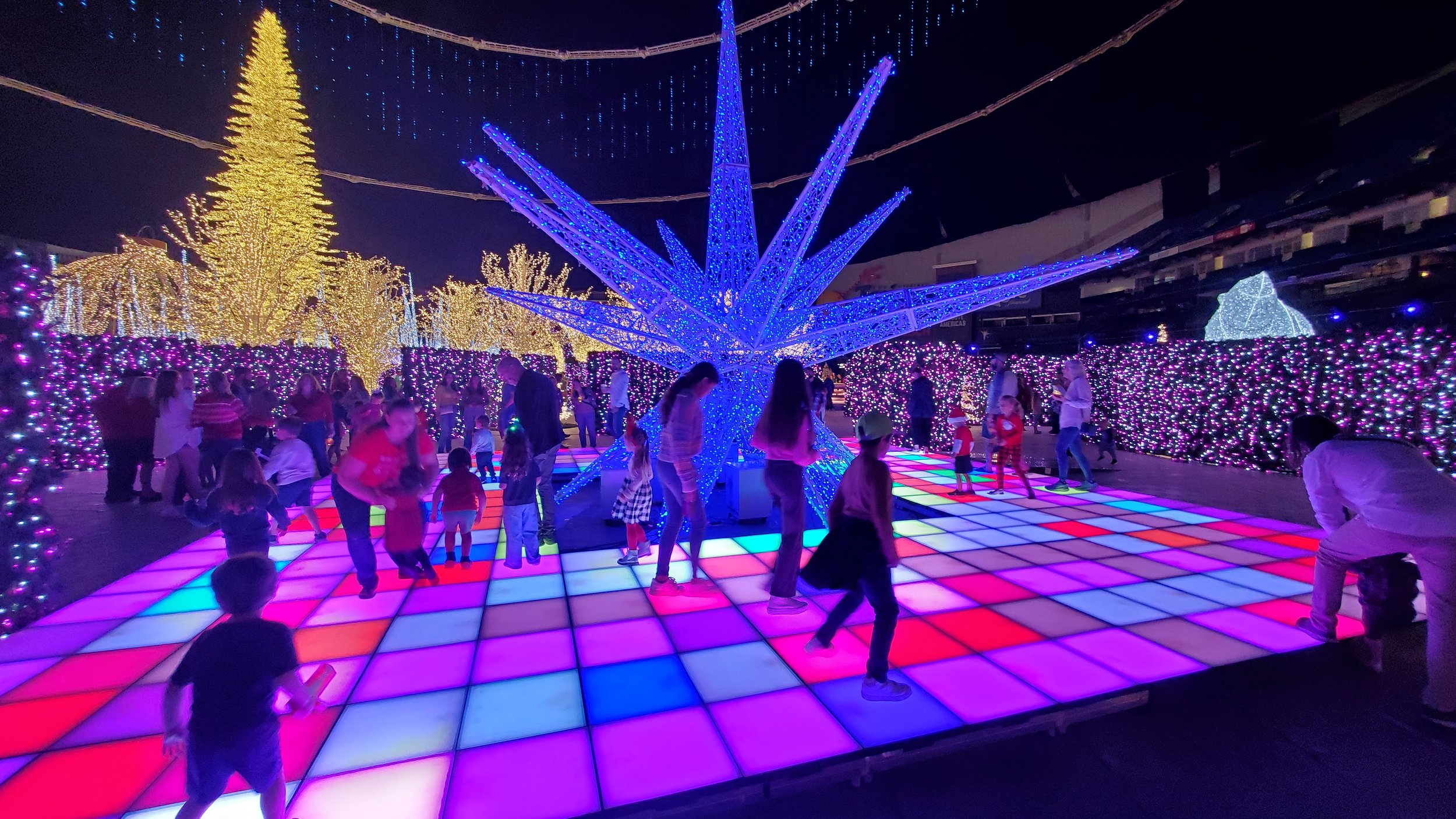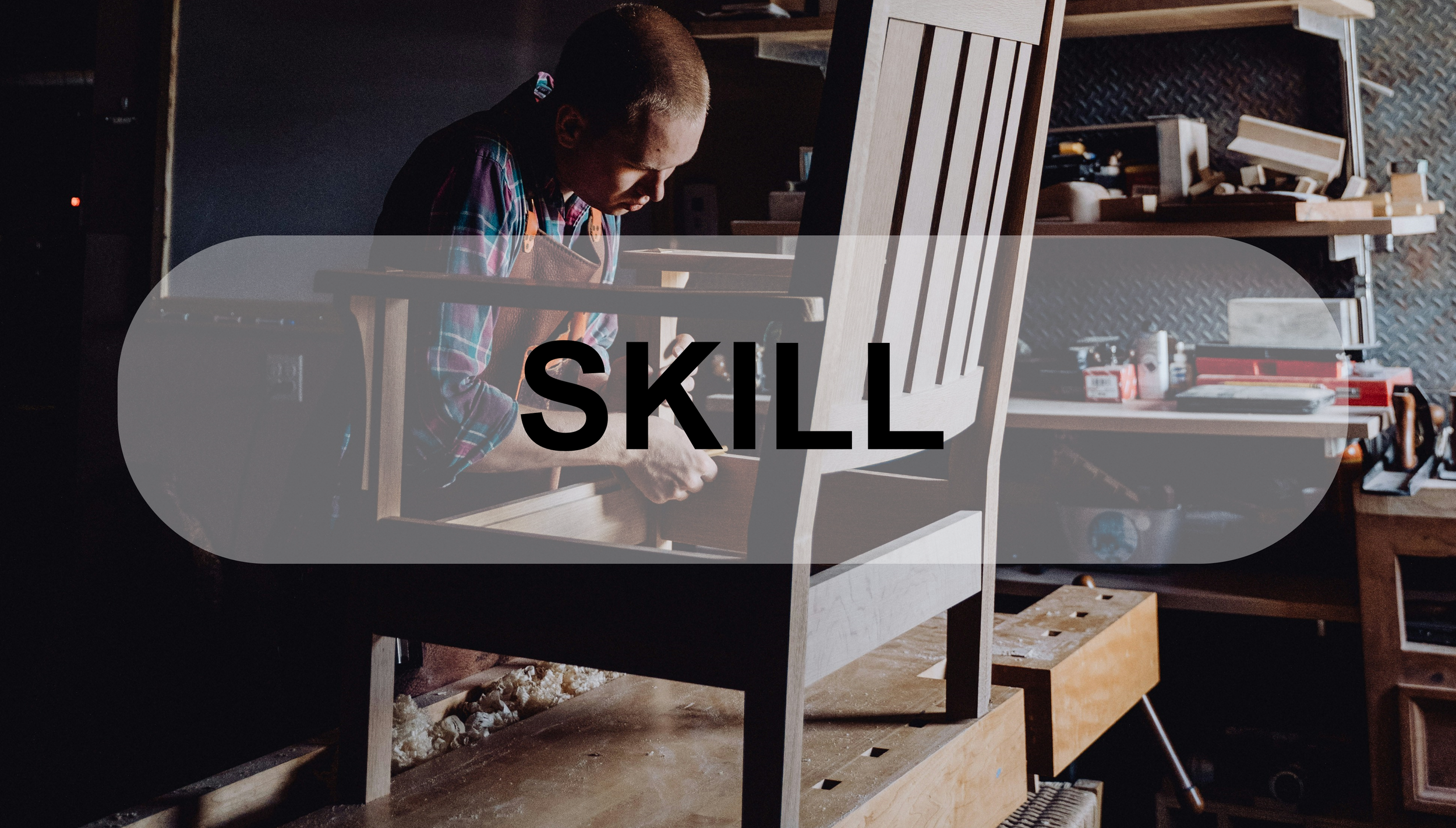How Do I Pick The Right DJ?
With so many DJs out there, it can be overwhelming to know you’re getting the right one. What questions should you ask? What equipment is even available? What’s normal and how do you spot a red flag or a hidden gem?
I get this from a lot of my prospective clients, who say they’re liking what I’m saying but are just so overwhelmed by the abundance of options. Honestly it’s true, there are a TON of different things to look for in a DJ, from the quality of speakers they’re using to how good they are at public speaking for announcements to the quality of their character. So this is going to be
First things first, there’s too many different things to think about at once, so let’s group them up so we can narrow down our focus. I believe a DJ can be boiled down to 5 dimensions:
Equipment
Personality
Price
Organization
Skill
I think those 5 characteristics are the most general way to simplify what every DJ brings to the table. So with that said, here’s how I would break down everything I can think of that could go into a DJ. I will update this post any time I think of something else to add.
I’m not qualified to give legal council, this is all the fruits of my experience in the field.
Also, once I post this, I’m gonna start working on a “DJ Hunters Guide” document that you’d be able to fill out and download in order to simplify the process of narrowing down your search! Be sure to ask about it if you’re interested, but once it’s up there will be a hyperlink for it below this paragraph. :)
First things first, what do you need/want for your wedding? Be sure to make a list and separate it into “Must Haves” and “Bonuses”, it’ll really help to narrow down the field to start with. For instance, if you need the DJ to bring some fun dance floor lights, some DJ’s don’t have that, some charge for it, and some (like me) include it by default, and others have a whole theater production amount of lights they can bring! Here are the primary elements a DJ might have:
1. Speakers
So with the speakers, you just need to make sure we’re talking about REAL speakers. It’s not so much about brands (although some for sure are better than others) but mostly about making sure it’s not some cheap, small speakers. Just look for, or ask for, a picture of their full setup so you can see that they’re using professional speakers. If, however, you see these skinny tower-looking things, that DJ has invested a LOT into the quality of sound they’re delivering.
2. Subwoofer
First, decide if it’s important to you that your chest rattles in ways you didn’t know it could rattle when the bass hits.
Then, ask your venue if they would even allow a DJ to use a subwoofer (a lot of them do not).
Then ask your DJ if he has a subwoofer.
3. Dance Lights
Dance lights are fun, you should expect your DJ to at least have a dance lights option, if not already included by default. High-end DJs will have wrap-around light rigs like in the picture, but most of your mid-range and even some high-range DJs will typically have something closer to a Gigbar like THIS.
Regardless of what they have, make sure you understand if their lights are extra or included.
4. Microphone(s)
Make sure you know exactly how many microphones come included by default and what’s extra.
For any event that has someone other than the DJ using the mic (i.e. weddings) be sure you know the range of the microphone they have. If the DJ’s mic only has a 20-foot range, but their setup is 30 feet away from the officiant during the ceremony, there’s a good chance it’s gonna be a natural voice ceremony, or worse, one where the signal keeps cutting out mid-sentence.
5. Fog Machine
To achieve that “dancing on a cloud” look, you use a fog machine. They’re like $40, so every DJ should have one as an option. As cool of an effect as it is, there are reasons why this isn’t a default assumption, some venues and DJs not even allowing them at all.
First of all, there are chemicals involved in order to achieve the fog. It’s important for you to check that it’s water based, and not oil based. Oil based fog will look better, but will leave a residue on your dress and have potential health risks.
Secondly, fog can trick a visual smoke detector, so it’s important to know what kind is at the venue if you don’t want a very unwelcome interruption.
Additionally, it obscures the dance floor. If the floor is raised, or if someone drops a glass, it can compound the dangers of hazards.
Lastly, you don’t want the fog during the whole event because you don’t want prolonged exposure even it’s supposed to be safe. People with asthma can have issues, and some people can experience allergic reactions.
Lots of people still use fog machines though, these are just things you should know and consider.
6. Uplights
Exactly what it sounds like: lights that point up!
These can give an aesthetic impact to a reception hall. They’re extra work to set up so they’re often an upcharge.
Ask how many they have, and if they can accommodate your color theme.
7. Dance Floor
Rare. Most venues have their own dance floor, so most DJs will not. There are, however, dance floor vendors if you need one.
8. Photo Booth
Some DJs have a photo booth that doesn’t require an attendant, being so intuitive that your guests will be able to operate it unassisted. This can add a lot of fun for the guests, and give you tons of great pictures to keep! Different models take different quality of pictures, so keep that in mind! The better the picture quality, the higher the cost.
There are four main things for you to ask:
1. Are the pictures digital only or is there a printer?
2. How easy is it for guests to get the pictures during the event?
3. Can I see some examples of the pictures that have come from past events?
4. Do you have a 360 photo booth?
9. Backup DJs
Most DJ’s are solo operators, but there are plenty of DJ companies!
A big downside to working by oneself is that if anything happens to you, there’s nobody to replace you. If you want the extra peace of mind to know that there are more DJ’s who can come if something happens, then you’ll want to ask if you’re dealing with a solo operator or a team of DJs.
If it’s a company with multiple DJs, you’ll want to ask if you’re speaking with your DJ or a coordinator.
Other stuff to ask about:
Table, some DJs apparently don’t bring their own.
Power supply, some DJs don’t have extension cords either. Maybe you should ask if they have reliable transportation at that point?
Ceremony Setup, many weddings have the ceremony in a separate location from the reception. Make sure this is a logistical detail the DJ can accommodate if you’re gonna need them for the audio.
Picture this: the bride and groom are cutting the cake, one of them trips and knocks the table over and the cake spills all over the floor and on their clothes. The DJ calls out on the microphone “UH-OH! That’s definitely not what we meant by having a pretty sweet dance floor!”
There’s a time and a place for a joke, and that sort of moment is actually a good place to try to diffuse the tension… the difference between easing tension, and being insensitive to all the incredibly harsh emotions the couple will be feeling in that moment, is a very, VERY fine line. Is the DJ a respectful person who can be funny when the time comes, or are they a joker who just happens to usually get lucky and not be offensive? Or are they too timid to push the boundaries a little, afraid to show off their personality because they never take risks with music or humor?
In this section we’ll explore some signs to look for, character traits and how to look for them.
Call and Reviews
These are the best ways to get a vibe for the kind of person you’re dealing with. For reviews, consider the compliments and criticisms from the DJ’s perspective. Was it a reasonable expectation that someone is upset about? Was there a miscommunication?
Especially look for compliments about how they handled being inconvenienced, because that’s usually when their character shows up.
For calls, read on. :)
Team Player
Back when I was a waiter, I overheard some coworkers complaining to one another about their tables. I’ll never forget when one said “I’m your servER, not your servANT”. Now don’t get me wrong, I completely believe that people in a position of serving others should be treated with respect. But I also think that it’s best to work with humility when people don’t value your service properly, and grace when the customer is a little rough around the edges.
So some questions you want to look for in the reviews and in your phone call are:
can they be patient with a difficult customer?
are they flexible with unexpected changes of plan?
what are their expectations from their customers?
ask them a random open-ended question like a “would you rather” and see how they respond to the unexpected.
Fun
Do they seem fun? Do you get along? This should not be your first priority, because there are plenty of charismatic people who are bad at their job, but it IS important to know if they’re someone who seems like they have good skills with social cues.
Try to interrupt them when they’re in the middle of explaining something, and see how they respond. Are they a reasonable amount of offended or even chill about it, or do they get mean or condescending?
Ask them a question about some fun things they’ve done at weddings. Even if they made it up, it still shows what they think would be fun, so it’s a win/win.
See what people say about having fun with them. Especially if they say their guests had fun, that’s a good sign because most couples already like their DJ. The audience might be more judgemental about problems.
Commitment
How committed are they? Do they quit when the going gets tough, or do they try to solve every problem as a challenge to be more creative?
Unexpected things WILL happen at some point either while making plans or during the event, so it’s important to know how they handle hard times.
For example, there was a time I was working under one of those park ramadas and it started raining hard. Fortunately we had shelter, but the floor was low enough and the rain heavy enough that the entire ground flooded with half an inch of water. So when I noticed that water coming in, I had to think REAL fast for what to do about all my electrical cables, grabbing chairs and whatever I could find to raise stuff off ground level. Then, once I had secured my equipment (with the help of some wonderfully considerate guests) I played a song that turned a “oh no it’s raining” night into a “HECK YEAH IT’S RAINING” night”. :)
Ask common interview questions like “what was a time when something went wrong, and how did you fix it?”
Ask them to clarify what kinds of things could happen that would cause them to cancel, and how their cancellation policy works in those cases.
Consider if they’re someone who seems professional enough to leave their personal life out of their professional life, check for it in reviews.
Ask them what they’d do if their car was totalled the day before your event. The correct answer should be “I’d rent a vehicle and do the event” or something that says they’ll find a way to honor their commitments.
What’s a reasonable price? How can you tell the difference between someone who’s expensive because they’re great at what they do and someone who’s expensive because it’s what other people in their area are charging regardless of whether they’re worth the cost?
Ultimately, cost is subjective. What a DJ thinks they’re worth can be a result of a great many different possible reasons, but the important thing for you is that you know your own priorities. The more things you want between Equipment and Skill, the higher of a price you’d expect. Every region is gonna be different, but in my area you’re basically looking at this for the DJ rates (just DJ, not including any bundle services like photo booth or something):
Gamble, or low importance event like karaoke night: <$100/hr
Acceptable: $100/hr
Skilled, good equipment: $150/hr
Top tier/high demand, great equipment: $200/hr
Questionably priced or exceptionally popular: >$200/hr
There’s no single rule for how to price your services. Some DJ’s will charge based on the package, some on the hours, some a sophisticated combination of things. My rates, for example, are hourly, based on the day, per-service. So my DJ rates are one price per hour based on the day, my photo booth is another price per hour regardless of the day, etc.
One thing that’s VERY important is to know is what is included with the price. It’s annoying, but you need to specify everything that’s important to you, just to be safe. The last thing anybody wants is for their DJ service to feel like a used car experience where you only find out what comes included after making a purchase commitment.
Since weddings are some of the most complex events, I’ll use them as an example, but the concept applies to any event. Once you have your list from section 1 of what equipment is important to you, here are some great questions you’ll want to ask about:
What do you bring for the ceremony equipment? Do you have a mic for both the officiant AND the vows, and are those included in the price you quoted or are they extra? Do you have portable power if the ceremony location doesn’t have a nearby outlet? What does this package include for the ceremony and what’s an example of something that would cost extra if we wanted it?
Describe what this package typically includes for the Reception of a wedding, from announcements to the planning steps to music requests, please clarify what all is included. What’s an example of something that would cost extra if we wanted it?
Some prices can be negotiated. You’ll never know if you don’t try.
MC Services
Some DJs make this an “add-on” charge, however in my experience almost every event needs this as a fundamental service. Master of Ceremony services, or “MC” for short, refers to two pieces:
1. Doing stuff on the microphone.
2. Helping keep the event running.
Baby MC stuff
These are things you should be able to expect from any respectable DJ. Announcements, Introductions, and Crowd Interaction from the stage.
The real MC stuff
The mark of a professional, putting the “master” in master of ceremonies. This is what makes the difference between an entertainer and an essential service provider to your event. The name of the game is service, answering the question “how can I make this a more seemless and pleasant experience for my customer?”
An example of a DJ who fails at this would be someone who sits behind their DJ booth throughout your whole party, sets a playlist, and waits for you to tell him what you want to do next. It’s someone who doesn’t interact with your guests unless it’s from the stage (if anything). It’s someone who says “it’s not my problem” when other vendors drop the ball.
There’s no specific list, but some great examples of exceptional service are the following:
Understanding the itinerary inside and out, so that the MC can tell you what’s happening next.
Interacting with other vendors to ensure everyone is on the same page. Sometimes the photos go too long during cocktail hour, so I’ll tell the catering crew they can hold the salad in the fridge a few extra minutes.
Suggesting things to make announcements for, instead of assuming you already know 100% of everything you could possibly do at your wedding.
Interacting with guests in a fun and respectful way both on and off the stage, encouraging an atmosphere of fun and celebration.
Keeping track of the time so that you don’t accidentally miss opportunities to make memories, like enjoying the time with your friends during your wedding and forgetting to do a bouquet toss (a lesson I learned when just starting out, I still think about it).
In other words, a real MC is someone you can entrust your event to once you’ve started it, handing it to them and resting assured that you won’t even have to think about your itinerary for the rest of your party, allowing you to just enjoy the ride like everyone else there. :)
Other things to double check for:
Travel Expenses
Setup & Teardown
Music Requests
Bundle deals with collaborators (photographer, caterer, wedding planner, etc.)
Let’s face it: Artists need to work reeeeeeeeeeally hard to stay organized! Often times there’s an inverse relationship between artistic people and organizational skills, which is a strong concern for a profession that requires attention to detail! So here are some VERY important things to look for and ask about:
The Contract
Let’s get down to brass tacks: You, the customer, need a contract. The business needs a contract. Do not, I repeat DO NOT work with any vendor or customer without one. First and foremost so you’re both clear on whom exactly you’re conducting business with (a person, an LLC, a group of DJ’s, etc.). I’m not about to have someone claim they thought they were working with me as an individual instead of my DJ Brand.
Secondly, you need to know you’re both on the same page for what exactly your expectations are for one another. Just a few things to look for…
The cancellation policy. How and when can EITHER of you cancel? Are there any penalties? What if you don’t need to cancel, but just move the date?
The exact price you’re going to pay for all services (if it’s not stated on the contract, you don’t owe jack diddly).
The Time and Date and Address of the Event.
What exactly is the DJ going to provide?
What are the exact expectations for payment now and later?
Communication
How urgent are they in responding? Typically you should expect a DJ to be able to respond within a few hours, except on weekends. Certainly by the following business day at the latest.
How good are they at keeping track of the topics you’ve asked them about? Are their responses thorough or do they seem a bit forgetful? Remember, you need someone reliable before anything else.
Does it seem like they’re making you a priority? Are they transparent or a bit close-lipped? Do they answer your questions about price or do they dance around it a bit?
That last question, I admit, is a bit tricky. For example, if someone asks me “what do you charge for 4 hours?” the answer is “anywhere from $350 - 1500”! So I do need to ask some preliminary questions about what sorts of service you’re looking for. However, since you’ve already read my handy guide, you’ll already be able to tell them exactly what you’re looking for so that you can skip straight to the juicy stuff! :)
Planning
How easy do they make it to plan out your event? Do they have any resources like a handy worksheet that clearly communicates your plans, or do you have to rely on their ability to take great notes out of your emails, phone calls, and texts. Do they even allow calls and texts? What’s the proper procedure for making plans?
It’s really important for you to get a crystal clear perspective on how they will make your vision become a reality. Do they have a pre-event call to make sure you’re both up to date on the details?
What happens after the event, does he have like a followup closing message with any loose ends you might have forgotten about? How well does he take care of the process from start to finish so that you don’t have to worry if you’re forgetting anything you’re supposed to do for his side of your event?
Insurance
Anything can happen. It’s an unfortunate reality that accidents can always happen even to the most prepared people.
In the event of something going wrong, do they have liability insurance? A lot of venues require it from their vendors anyways, so check with the vendor and communicate that with the DJ out the gate. That might narrow down your options too, to show you who’s prepared and who’s been gambling hoping nothing happens.
Payment
How and when do you pay them for their services? Here are some things you’ll want to know and ask for clarification on.
Terminology:
“Deposit” is an amount of money that you can get back if certain conditions are met.
“Retainer”, which is more common, is an amount of money you do not get back. Sometimes not at all, and sometimes under very specific circumstances. It’s important to know, because a lot of vendors don’t know the difference and mean to say retainer but only know the word “deposit”. So really any time you see deposit, double check what exactly they mean by that, because a deposit is refundable.
Methods:
What kind of options do they have for payment? Zelle? Venmo? Credit cards? Autopay?
Logistics:
When is it due? A week before the event? On the day of?
Are there discounts for paying in full in advance?
How good are they at the actual craft of being a DJ?
Are they lazy, just here because they happened to have equipment or an excess of money lying around and they just do this as something to do on the weekends? Or are they a professional who treats each customer like they’re a brand new experience waiting to be served? How much experience do they have with things going wrong, and therefore come prepared to adapt? Are they good at reading the crowd, or social cues in general, to be able to react appropriately? Here are some things you’ll want to find out more about:
Do they speak any other languages?
Do they have any games or jokes that they incorporate?
Are there any videos that demonstrate their skills?
What are the three genres they’re most comfortable with?
What are the three they’re least comfortable with? How do they deal with that weakness when they get requests for it?
How do they stay organized during the event so they don’t miss something important?
What’s an example of a time when something went wrong and they were a part of the solution?
How do they handle stressful situations, or obnoxious party guests?
Do they have any recommendations for other vendors?
That’s all for now!
Thank you so much for taking the time to read all that! I hope it helps. :) I’m always looking for ways to improve, so if you think this guide is missing anything, please let me know and I’d be happy to keep building on this until it’s the ultimate resource for people all over!



























